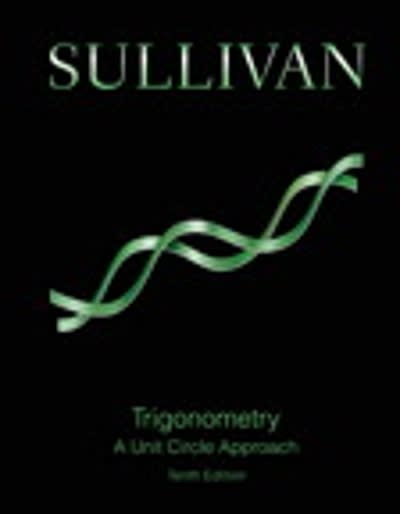Answered step by step
Verified Expert Solution
Question
1 Approved Answer
1. Assume that A, B, C, and D are all single digit whole numbers. If ADD + ADD = CBDA, which single-digit number is represented
1. Assume that A, B, C, and D are all single digit whole numbers. If ADD + ADD = CBDA, which single-digit number is represented by each of the letters A, B, C, and D? HINT: D + D = A (ones digit) and D + D = D (tens digit), so D + D is greater than or equal to 10 because there is the carryover....more of this logic. 2. In each case, state whether the mean or median would give a better description of the "average." a) The average household income in Washington b). The average age at first marriage for men in America c). The average weight of potatoes in a 10-pound bag d). The average waiting time in the lines for a drive-up window at Jack in the Box 3. When a woman learns she is pregnant, her doctor calculates a due date for the baby. The due date represents the date on which the baby will be born if her pregnancy lasts the mean of all length for all pregnancies. Actual lengths of pregnancy terms turns out to be normally distributed about this due date (the mean) with a standard deviation of 15 days. a). About what percent of births occur more than three weeks before the due date? b). About what percent of births occur more than three weeks after the due date? c). About what percent if births occur more than 15 days before the due date
Step by Step Solution
There are 3 Steps involved in it
Step: 1

Get Instant Access to Expert-Tailored Solutions
See step-by-step solutions with expert insights and AI powered tools for academic success
Step: 2

Step: 3

Ace Your Homework with AI
Get the answers you need in no time with our AI-driven, step-by-step assistance
Get Started


